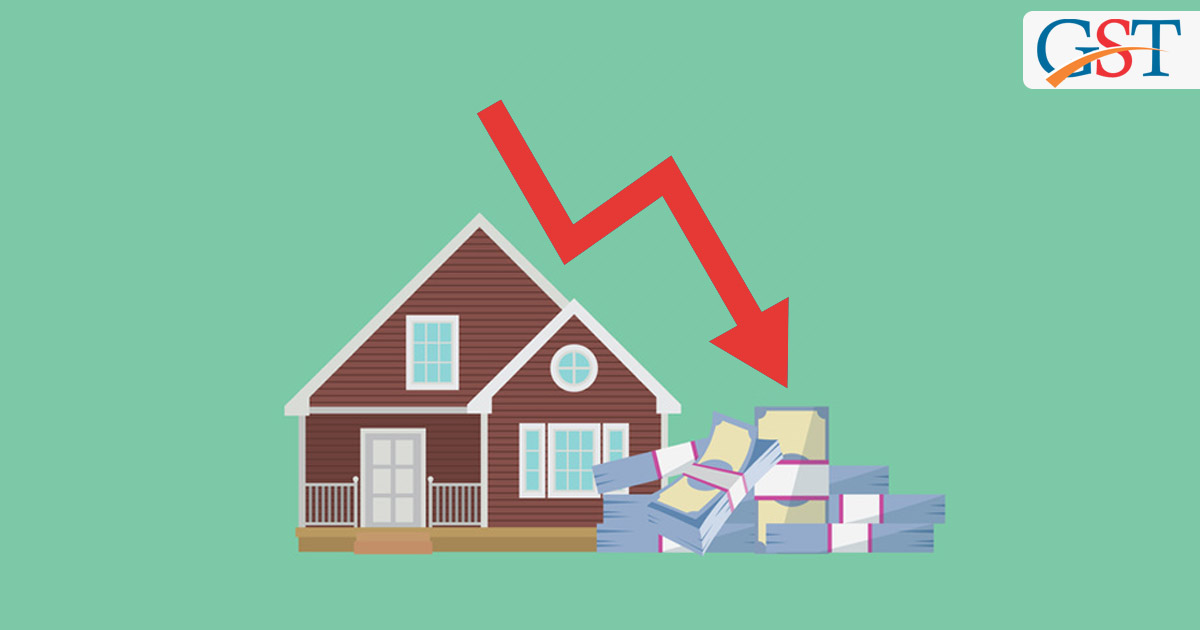On 24th Feb 2019 GST council in its 33rd meeting, Council mulled over the proposals to cut GST rates on real estate. Once the proposals are cleared, buying an under-construction apartment will become cheaper.
GST Council Expects the Following Fluctuations:
- For the non-affordable under construction properties (above or equal to 45 lakhs) GST rate will be coming down from 12% to 5%
- For the affordable or low-cost residential properties, GST rates will come down from the current 8% to a new 1%.
Let Us See How GST is Charged?
The constructed property doesn’t attract any GST and a buyer is under no obligation to pay GST for the constructed property.
While Process of buying an under construction properties referred to providing service from the builder in terms of tax, earlier it was accompanied with service tax but now in the GST regime the service tax is replaced with GST which is calculated as follows:
- For the non-affordable under construction property GST is calculated at 18% on two-thirds of the value of the property, which becomes to 12% GST on total value with a full input tax credit (ITC).
- In the same way, for the affordable under-construction property, GST is charged at 12% on two-thirds of its value, which means effectively 8% with full ITC.
Read Also: Top GST Informational Resources for Taxpayers & Individuals
One-third of the value is treated to be the cost of land and hence not considered for GST. ITC helps a business in the reduction of the GST amount it has paid on inputs or raw material from the amount of GST it is bound to pay on the output. This credit is transferred to the buyers.
- Along with GST, the buyer is supposed to pay stamp duty and registration fee also on property. Stamp duty is charged by respective state governments which in general varies between 5% and 8% throughout the country. This implies an additional about 20% of the property value in GST and other fees when buying a house.
On the request of homebuyers and developer, the GST rate was rationalized for affordable housing project from 18% to 12% (effective 8%), which does not seem to be significant enough.
GST Rate Cut Scenario:
The Real Estate Sector has been already suffering from low sales levels for the last few years. The government mission of Housing for All by 2022 further lessen GST on the under-construction property.
In its meeting on 24 February, the GST Council said, “There are reports of a slowdown in the sector and low off-take of under-construction houses which needs to be addressed. To boost the residential segment of the real estate sector, we made the recommendation to reduce the rates.”
To understand the rate cut, let us first get clear understanding of affordable and unaffordable residents in metro and non-metro cities according to the norms of government The GST Council said, “A residential house or flat of carpet area of up to 90 sq.mtr (about 970 sq.ft) in non-metropolitan cities or towns and 60 sq.mtr (646 sq.ft) in metropolitan cities having value up to ₹45 lakh (both for metropolitan and non-metropolitan cities) will be considered as affordable housing unit.”
Metropolitan cities include Bengaluru, Hyderabad, Kolkata, and Mumbai (the whole of MMR), Delhi NCR (limited to Delhi, Noida, Greater Noida, Ghaziabad, Gurgaon, Faridabad) and Chennai.
GST Council’s rationalization replaced 18% on two-thirds of the value of a non-affordable under-construction property with an effective GST rate of 5% on the value. Similarly, 12% GST on two-thirds of its value of a property in affordable group categories revalued at a new effective rate of 1%.
However, it is not crystal clear that the new GST rate is flat or there is abetment for land cost.
Will GST Cutdown the Cost of Properties?
At one side the recommendation of GST council cuts down the GST rates while on the other side it restrains Builder and developer form claiming ITC on different raw stuff like cement, steel etc. which earlier used to bring down the cost for developers.
“Developers will be burdened with GST payments to vendors, suppliers, agencies, and contractors and this will land up increasing the cost further amid the already shrinking margin in business due to dynamic policies implemented by the government,” said Parth Mehta, managing director, Paradigm Realty, a real estate developer.”
The ready-to-move-in properties are exempt from GST. Buyers need to pay only stamp duty and registration charges like taxes, which comprise 7-8% of the total property cost.
Prices of the apartment will start looking northwards if developers lose ITC, said Om Ahuja, chief operating officer, residential business, K Raheja Corp., a real estate developer.
Kapil Sharma, partner, Lakshmikumaran & Sridharan Attorneys agreed. “For buyers, prices may not actually reduce (after GST reduction) as the developers would not take a hit of the tax cost which is incurred on the goods/services and such cost would form part of the price of the unit,” he said.
Recommended: ITC Ineligibility Terms & Conditions Under GST w.e.f. 1st Feb 2019
The slowdown in the real estate sector is also hurting allied sectors like steel, cement, and construction.
However, some experts differ and believe that given the current market situation, it would be difficult for developers to pass on the ITC burden to the home buyers. “The withdrawal of ITC could impact the profitability of real estate developers. Developers will need a price hike of 2-4% to maintain margins, which seems difficult in the current market scenario,” said Rahul Prithiani, director, CRISIL Research.
In general, the cost of buying a house is expected to come down, but not to the same limit by which GST rates have dwindled.










